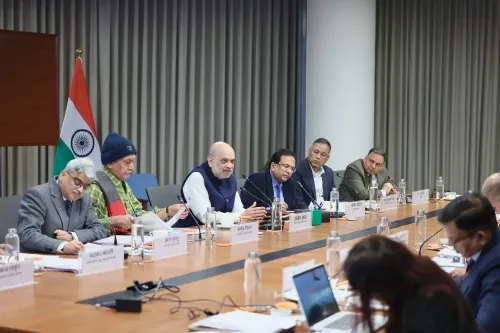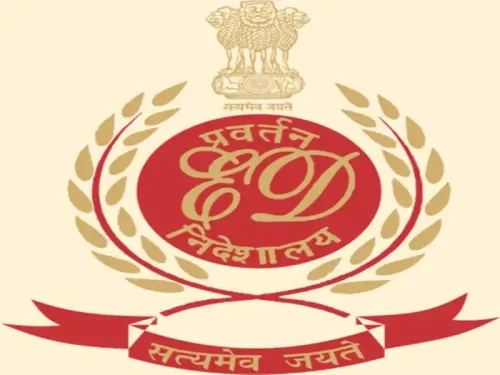What Are the Implications of SEBI's New IPO and Mutual Fund Regulations?

Synopsis
Key Takeaways
- AMFI supports SEBI's regulatory reforms for IPOs.
- New MPS norms provide extended timelines for large companies.
- Reduction in exit loads boosts investor protection.
- REITs reclassified as equity enhances mutual fund investments.
- SWAGAT-FI framework benefits institutional investors.
New Delhi, Sep 13 (NationPress) The Association of Mutual Funds in India (AMFI) expressed strong approval for the recent regulatory changes implemented by the Securities and Exchange Board of India (Sebi), which aim to simplify the rules surrounding initial public offerings (IPOs) and foreign portfolio investments.
At its latest board meeting, Sebi announced modifications to the minimum public shareholding (MPS) criteria for sizable companies intending to launch IPOs.
“We are pleased to see SEBI taking such progressive and thoughtfully structured steps during its latest board meeting. The newly introduced incentives designed to broaden mutual fund access beyond the top 30 urban centers and among female investors are in perfect alignment with AMFI’s goals for financial inclusion,” stated Venkat N Chalasani, Chief Executive of AMFI.
Moreover, the reduction of the maximum exit load from 5 percent to 3 percent further emphasizes Sebi's dedication to investor protection and transparency.
Additionally, the reclassification of REITs as 'equity' for mutual fund investments is a timely measure that will broaden diversification opportunities and bolster the growth of real estate as a viable investment asset class, Chalasani noted.
Overall, these measures will enhance investor participation, fortify the long-term stability of the mutual fund sector, and maintain a thoughtful equilibrium between regulatory strictness, investor protection, and the ease of conducting business, he further explained.
Previously, Sebi had revealed a series of regulatory adjustments, including significant relaxations regarding IPOs, as well as easing conditions for foreign portfolio investors looking to engage in the domestic market, alongside simplifying entry requirements for advisory certifications.
Under the updated regulations, companies valued between Rs 50,000 crore and Rs 1 lakh crore will receive extended timelines to fulfill public shareholding obligations.
Specifically, they will need to achieve 15 percent MPS within five years of going public and 25 percent within ten years, compared to the current requirement of meeting the 25 percent threshold within three years.
Moreover, a new category of alternative investment funds exclusively for accredited investors (AI) has been authorized. As per a Sebi announcement, the minimum investment size for Large Value Funds has been lowered from Rs 70 crore to Rs 25 crore.
The newly introduced SWAGAT-FI framework, providing 10-year registrations, a single demat account, and exemptions from the FVCI rule mandating 66 percent of the corpus in unlisted equity, will particularly benefit sovereign wealth funds and pension funds.










